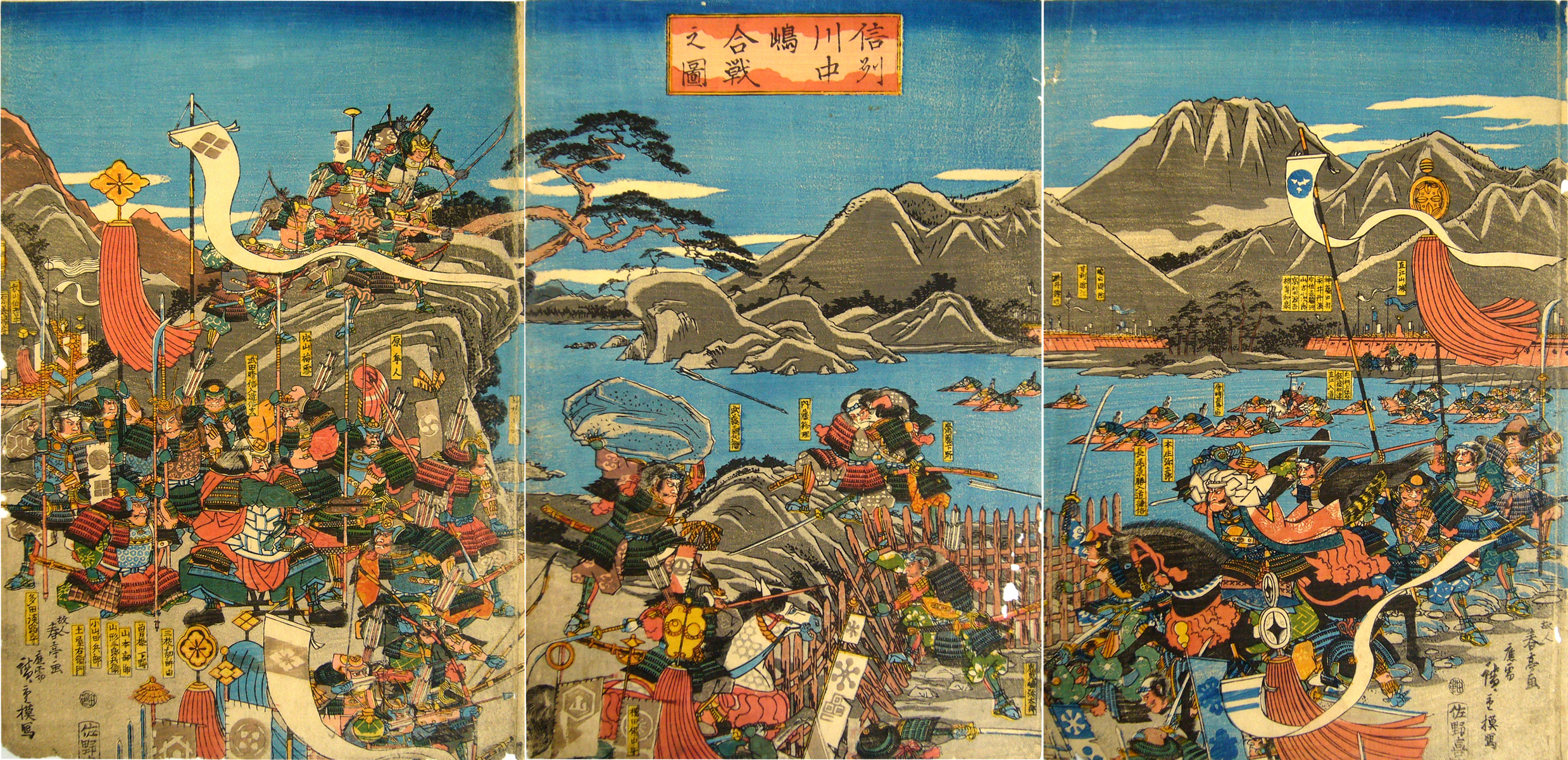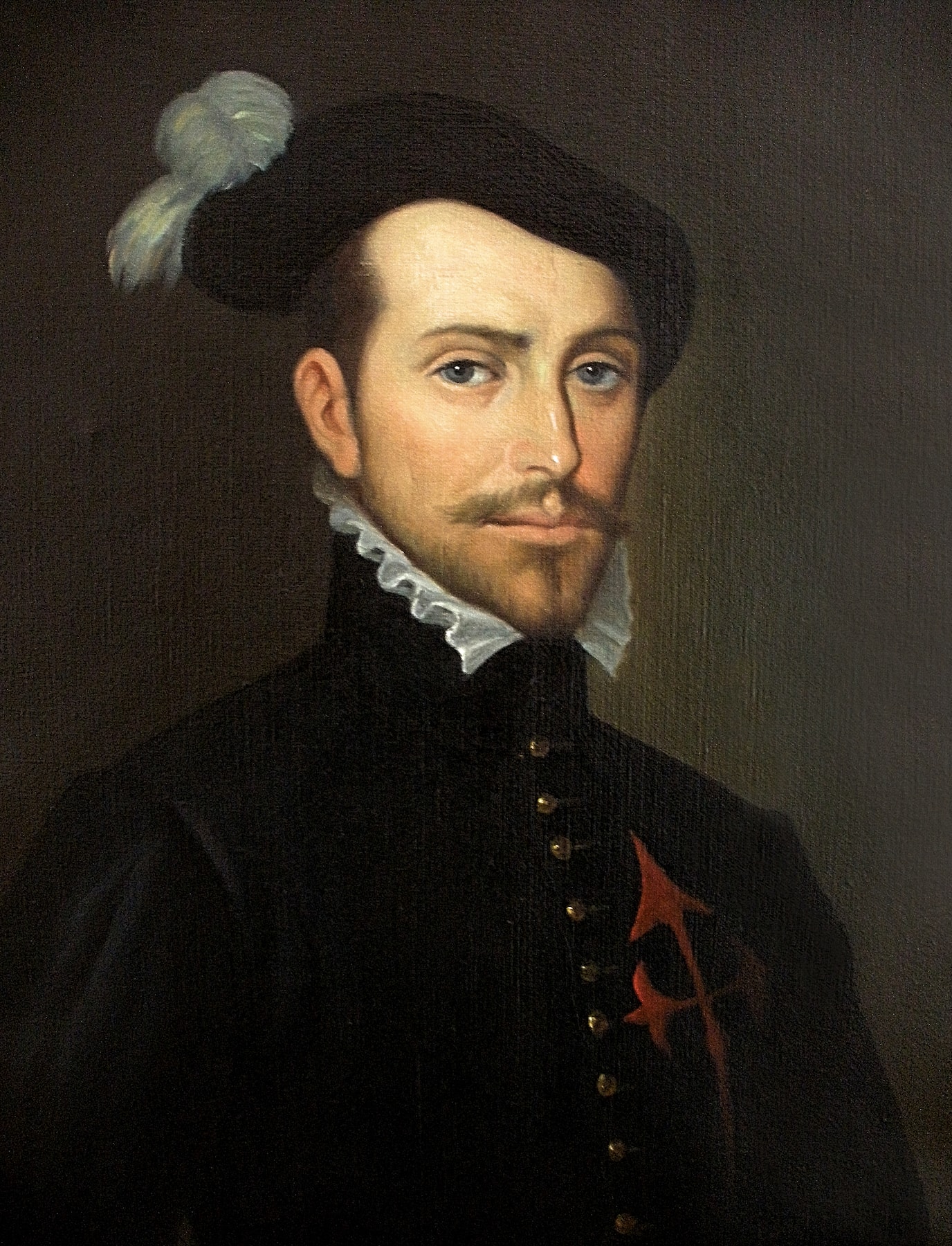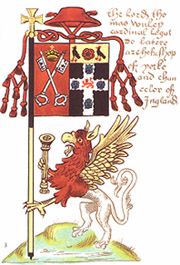|
Frans Van Cranevelt
Frans van Cranevelt (Nijmegen, 3 February 1485 – Mechelen, 8 September 1564), also known as Franciscus Craneveldius, was a Flemish humanist and lawyer. Life Cranevelt was the son of Herman van Cranevelt (1442–1518), secretary of three successive dukes of Guelders, and Irma van Heusden-Helshout (died 1528). In 1509 he married Elisabeth van Baussele (d.1545) from Leuven, who bore him at least eleven children, and in 1560 he married the widow Catherine de Plaine. After having received home education, together with Gerard Geldenhouwer, and having studied at the Latin school in Deventer, in 1497 he went to Cologne for his university studies. At that time he was barely thirteen and when he completed his studies in 1500 he was not awarded a degree because he was too young. He then went to Leuven University, where he studied under Johannes Despauterius and Adriaan Floriszoon, the future Pope Adrian VI. In 1505 he graduated licentiate of philosophy as the top of his year (''p ... [...More Info...] [...Related Items...] OR: [Wikipedia] [Google] [Baidu] |
Nijmegen
Nijmegen (;; Spanish and it, Nimega. Nijmeegs: ''Nimwèège'' ) is the largest city in the Dutch province of Gelderland and tenth largest of the Netherlands as a whole, located on the Waal river close to the German border. It is about 60 km south east of Utrecht and 50 km north east of Eindhoven. Nijmegen is the oldest city in the Netherlands, the second to be recognized as such in Roman times, and in 2005 celebrated 2,000 years of existence. Nijmegen became a free imperial city in 1230 and in 1402 a Hanseatic city. Since 1923 it has been a university city with the opening of a Catholic institution now known as the Radboud University Nijmegen. The city is well known for the International Four Days Marches Nijmegen event. Its population in 2022 was 179,000; the municipality is part of the Arnhem–Nijmegen metropolitan area, with 736,107 inhabitants in 2011. Population centres The municipality is formed by the city of Nijmegen, incorporating the former villages of Ha ... [...More Info...] [...Related Items...] OR: [Wikipedia] [Google] [Baidu] |
Christian II Of Denmark
Christian II (1 July 1481 – 25 January 1559) was a Scandinavian monarch under the Kalmar Union who reigned as King of Denmark and Norway, from 1513 until 1523, and Sweden from 1520 until 1521. From 1513 to 1523, he was concurrently Duke of Schleswig and Holstein in joint rule with his uncle Frederick. As king, Christian tried to maintain the Kalmar Union between the Scandinavian countries which brought him to war with Sweden, lasting between 1518 and 1523. Though he captured the country in 1520, the subsequent slaughter of leading Swedish nobility, churchmen, and others, known as the Stockholm Bloodbath, caused the Swedes to rise against his rule. He was deposed in a rebellion led by the nobleman and later king of Sweden Gustav Vasa. He attempted to bring in a radical reform of the Danish state in 1521–22, which would have strengthened the rights of commoners at the expense of the nobles and clergy. The nobility rose against him in 1523, and he was exiled to the Netherl ... [...More Info...] [...Related Items...] OR: [Wikipedia] [Google] [Baidu] |
1564 Deaths
Year 1564 ( MDLXIV) was a leap year starting on Saturday (link will display the full calendar) of the Julian calendar. Events January–June * January 26 – Livonian War – Battle of Ula: A Lithuanian surprise attack results in a decisive defeat of the numerically superior Russian forces. * March 25 – Battle of Angol in Chile: Spanish Conquistador Lorenzo Bernal del Mercado defeats and kills the toqui Illangulién. * June 22 – French settlers abandon Charlesfort, the first French attempt at colonizing what is now the United States, and establish Fort Caroline in Florida. July–December * July – English merchant Anthony Jenkinson returns to London from his second expedition to the Grand Duchy of Moscow, having gained a considerable extension of trading rights for the English Muscovy Company. * September 4 – The Ronneby Bloodbath takes place in Ronneby, Denmark (now in Sweden). * September 10 – Battle of Kawanakajima in ... [...More Info...] [...Related Items...] OR: [Wikipedia] [Google] [Baidu] |
1485 Births
Year 1485 ( MCDLXXXV) was a common year starting on Saturday (link will display the full calendar) of the Julian calendar. Events January–December * Spring – Multiple earthquakes occur near Taishan, China. * March 16 – A solar eclipse crosses northern South America and Central Europe. * June 1 – Matthias of Hungary takes Vienna, in his conquest of Austria (from Frederick III), and makes the city his capital. * August 5–August 7 – The first outbreak of sweating sickness in England begins. * August 22 – Battle of Bosworth: King Richard III of England is defeated by (rival claimant to the throne of England) Henry Tudor, Earl of Richmond; Richard dies in battle, and Henry Tudor becomes King Henry VII of England (although Henry marks this battle as August 21, so that he can declare all his opponents traitors). * September 12 – Muscovian forces conquer Tver. * September 15 – Peter Arbues is assaulted while praying in the ca ... [...More Info...] [...Related Items...] OR: [Wikipedia] [Google] [Baidu] |
Juan Luis Vives
Juan Luis Vives March ( la, Joannes Lodovicus Vives, lit=Juan Luis Vives; ca, Joan Lluís Vives i March; nl, Jan Ludovicus Vives; 6 March 6 May 1540) was a Spanish (Valencian) scholar and Renaissance humanist who spent most of his adult life in the Southern Netherlands. His beliefs on the soul, insight into early medical practice, and perspective on emotions, memory and learning earned him the title of the "father" of modern psychology. Vives was the first to shed light on some key ideas that established how psychology is perceived today. Early life Vives was born in Valencia to a family which had converted from Judaism to Christianity. As a child, he saw his father, grandmother and great-grandfather, as well as members of their wider family, executed as Judaizers at the behest of the Spanish Inquisition; his mother, born 1473, was acquitted but died of the plague in 1508, when he was 15 years old, shortly thereafter, he left Spain never to retur ... [...More Info...] [...Related Items...] OR: [Wikipedia] [Google] [Baidu] |
Adrianus Barlandus
Adriaan van Baarland or Adrianus Barlandus or Hadrianus Barlandus (1486–1538) was a Dutch historian of merit. He was born in the village of Baarland, from which he took his name. He studied at Ghent and Leuven, at which latter place he was elected professor of eloquence at the Collegium Trilingue in 1526, after a stay of some years in England. He died in Leuven in 1538, and was succeeded at the Collegium Trilingue by Conrad Goclenius. Besides some philological works of no great value, Van Baarland wrote a number of historical works, especially about the various provinces in the Low Countries The term Low Countries, also known as the Low Lands ( nl, de Lage Landen, french: les Pays-Bas, lb, déi Niddereg Lännereien) and historically called the Netherlands ( nl, de Nederlanden), Flanders, or Belgica, is a coastal lowland region in N .... References 1486 births 1538 deaths 16th-century Latin-language writers Habsburg Netherlands historians People from Borsele [...More Info...] [...Related Items...] OR: [Wikipedia] [Google] [Baidu] |
Thomas More
Sir Thomas More (7 February 1478 – 6 July 1535), venerated in the Catholic Church as Saint Thomas More, was an English lawyer, judge, social philosopher, author, statesman, and noted Renaissance humanist. He also served Henry VIII as Lord High Chancellor of England from October 1529 to May 1532. He wrote ''Utopia'', published in 1516, which describes the political system of an imaginary island state. More opposed the Protestant Reformation, directing polemics against the theology of Martin Luther, Huldrych Zwingli, John Calvin and William Tyndale. More also opposed Henry VIII's separation from the Catholic Church, refusing to acknowledge Henry as supreme head of the Church of England and the annulment of his marriage to Catherine of Aragon. After refusing to take the Oath of Supremacy, he was convicted of treason and executed. On his execution, he was reported to have said: "I die the King's good servant, and God's first". Pope Pius XI canonised More in 1935 as a martyr ... [...More Info...] [...Related Items...] OR: [Wikipedia] [Google] [Baidu] |
Erasmus
Desiderius Erasmus Roterodamus (; ; English: Erasmus of Rotterdam or Erasmus;''Erasmus'' was his baptismal name, given after St. Erasmus of Formiae. ''Desiderius'' was an adopted additional name, which he used from 1496. The ''Roterodamus'' was a scholarly name meaning "from Rotterdam", though the Latin genitive would be . 28 October 1466 – 12 July 1536) was a Dutch philosopher and Catholic theologian who is considered one of the greatest scholars of the northern Renaissance.Gleason, John B. "The Birth Dates of John Colet and Erasmus of Rotterdam: Fresh Documentary Evidence", Renaissance Quarterly, The University of Chicago Press on behalf of the Renaissance Society of America, Vol. 32, No. 1 (Spring, 1979), pp. 73–76www.jstor.org/ref> As a Catholic priest, he was an important figure in classical scholarship who wrote in a pure Latin style. Among humanists he was given the sobriquet "Prince of the Humanists", and has been called "the crowning glory of the Christian humanists ... [...More Info...] [...Related Items...] OR: [Wikipedia] [Google] [Baidu] |
Great Council Of Mechelen
From the 15th century onwards, the Great Council of the Netherlands at Mechelen (Dutch: ''De Grote Raad der Nederlanden te Mechelen''; French: ''le grand conseil des Pays-Bas à Malines''; German: ''der Grosse Rat der Niederlände zu Mecheln'') was the highest court in the Burgundian Netherlands. It was responsible for the Dutch-, French- and German-speaking areas. In Luxembourgish the phrase ''"mir ginn op Mechelen"'' (we'll go to Mechelen) still means playing one's last trump card. The Grote Raad first sat in the Schepenhuis in Mechelen then, from 1616, in the (old) palace of Margaretha of Austria on Keizerstraat. Origins and history The medieval rulers were assisted by advisers. Together with the ruler they formed the Council of State, also called the ''consilium'' or ''curia''. Gradually the council became more specialised, with separate financial, judicial and political council emerging. In the Burgundian Netherlands, the councils initially travelled with the Duke. In 147 ... [...More Info...] [...Related Items...] OR: [Wikipedia] [Google] [Baidu] |
Thomas Wolsey
Thomas Wolsey ( – 29 November 1530) was an English statesman and Catholic bishop. When Henry VIII became King of England in 1509, Wolsey became the king's almoner. Wolsey's affairs prospered and by 1514 he had become the controlling figure in virtually all matters of state. He also held important ecclesiastical appointments. These included the Archbishopric of York—the second most important role in the English church—and that of papal legate. His appointment as a cardinal by Pope Leo X in 1515 gave him precedence over all other English clergy. The highest political position Wolsey attained was Lord Chancellor, the king's chief adviser (formally, as his successor and disciple Thomas Cromwell was not). In that position, he enjoyed great freedom and was often depicted as an ''alter rex'' ("other king"). After failing to negotiate an annulment of Henry's marriage to Catherine of Aragon, Wolsey fell out of favour and was stripped of his government titles. He retreated to ... [...More Info...] [...Related Items...] OR: [Wikipedia] [Google] [Baidu] |
Emperor Charles V
Charles V, french: Charles Quint, it, Carlo V, nl, Karel V, ca, Carles V, la, Carolus V (24 February 1500 – 21 September 1558) was Holy Roman Emperor and Archduke of Austria from 1519 to 1556, King of Spain ( Castile and Aragon) from 1516 to 1556, and Lord of the Netherlands as titular Duke of Burgundy from 1506 to 1555. He was heir to and then head of the rising House of Habsburg during the first half of the 16th century, his dominions in Europe included the Holy Roman Empire, extending from Germany to northern Italy with direct rule over the Austrian hereditary lands and the Burgundian Low Countries, and Spain with its southern Italian possessions of Naples, Sicily, and Sardinia. He oversaw both the continuation of the long-lasting Spanish colonization of the Americas and the short-lived German colonization of the Americas. The personal union of the European and American territories of Charles V was the first collection of realms labelled "the empire on whic ... [...More Info...] [...Related Items...] OR: [Wikipedia] [Google] [Baidu] |
Bruges
Bruges ( , nl, Brugge ) is the capital and largest City status in Belgium, city of the Provinces of Belgium, province of West Flanders in the Flemish Region of Belgium, in the northwest of the country, and the sixth-largest city of the country by population. The area of the whole city amounts to more than 13,840 hectares (138.4 km2; 53.44 sq miles), including 1,075 hectares off the coast, at Zeebrugge (from , meaning 'Bruges by the Sea'). The historic city centre is a prominent World Heritage Site of UNESCO. It is oval in shape and about 430 hectares in size. The city's total population is 117,073 (1 January 2008),Statistics Belgium; ''Population de droit par commune au 1 janvier 2008'' (excel-file) Population of all municipalities in Belgium, as of 1 ... [...More Info...] [...Related Items...] OR: [Wikipedia] [Google] [Baidu] |






.jpg)


.jpg)